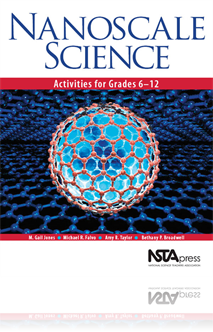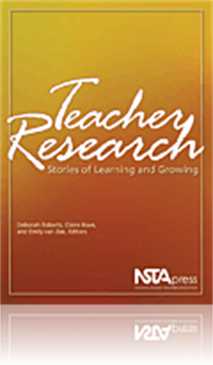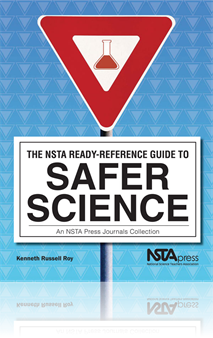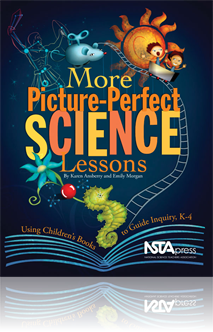All Book Chapters
Book Chapter
It’s a Small World After All: Nanofabric
Nanotechnology is producing a variety of new materials we use in our everyday lives. One such development is the latest stain-resistant fabric. This inquiry activity gives students the opportunity to explore and discover unique nanoscale properties o...
Book Chapter
Becoming a Teacher Researcher: Giving Space, Finding Space
Christopher Horne is a teacher specialist for elementary science for Frederick County, Maryland, public schools and an adjunct professor in the education department at Mount Saint Mary’s University in Emmitsburg, Maryland. He is pursuing a doctoral...
Book Chapter
Teachers Supporting Teachers in Learning
Diantha Lay is principal of an elementary school in Montgomery County, Maryland. When she wrote this chapter, she was just starting a new position for the county as a staff development teacher. Earlier she had been a second- and a fourth-grade teache...
Book Chapter
TEAM Connections: Four Teachers’ Journeys Into Action Research
Judy Fix, Norma Fletcher, Dianne Johnson, and Janet Siulc—a group of teachers in the Buffalo Public School District—wondered what they could do that would go beyond talk and speculation about their teaching practices. They wanted to take action i...
Book Chapter
Learning About Motion: Fun for All
Deborah Roberts is a fifth-grade teacher in Phoenix, Arizona. At the time she wrote this chapter, she was a middle-school science teacher in a high-poverty suburban school in Maryland. An earlier version of this paper was presented at the University ...
Book Chapter
Reflections on Fostering Teacher Inquiries Into Science Learning and Teaching
Emily van Zee is an associate professor of science education at Oregon State University and co-organizer of Teacher Researcher Day at National Science Teachers Association (NSTA) national conferences. She has been a middle school science teacher, sco...
Book Chapter
Reading, Writing, Comprehension, and Confidence—Achieved in Science Contexts
When Elizabeth Kline wrote this, she was a fifth-grade teacher in Prince George’s County, Maryland. A desire to integrate scientific concepts in a curriculum dominated by reading, writing, and mathematics motivated her to change the way she taught ...
Book Chapter
Fourth-Grade Scientists Investigate Electric Circuits
Trisha Kagey Boswell is a third-grade teacher at an elementary school in Montgomery County, Maryland, where she has taught for eight years. Her school is an art-integrated magnet school. When she wrote this chapter, she was a first-year teacher, teac...
Book Chapter
Ellen Franz is a teacher at an elementary school in the Sausalito Marin City School District, a small district just north of San Francisco. When she wrote this poem, she was teaching primary grades in a midsized urban school district and had been in ...
Book Chapter
When students Don’t Talk: Searching for Reasons
Mary Bell has taught for 23 years in a large suburban school district near Washington, DC. As an elementary special education and Reading Recovery teacher, she cotaught reading, science, and math as part of an inclusion model. Currently, she is worki...
Book Chapter
Evolving Ethical Perspectives in an Eighth-Grade Science Classroom
Matthew Ronfeldt’s dissertation as a doctoral candidate in Curriculum and Teacher Education at Stanford University is a crossprofessional study of how professional education supports novice teachers and clinical psychologists in adapting to their n...
Book Chapter
Student Teaching as Collaboration
For teachers who are trying to understand what their students think and how they feel, data can include notes found on the floor after class, the letters they as teachers write to their students, and the e-mails they send each other as they puzzle ou...
Book Chapter
Collaborative Conversations and Intentional Reflections on Teaching and Learning Physics
Dorothy Simpson taught mathematics for 15 years before she started teaching physics at Mercer Island High School near Seattle. Now retired, she is serving as a volunteer at a local elementary school with special interest in providing support for the ...
Book Chapter
In some ways, the laboratory safety standards may seem at odds with science laboratory curriculum expectations in an environment attempting to provide for full inclusion of all students. Clearly, not all students will be able to be fully mainstreamed...
Book Chapter
Learners explore the invention process by learning about inventions throughout history and how inventions fill needs or wants, by improving existing inventions, and by keeping a toy invention journal. They further their understandings of the risks an...





